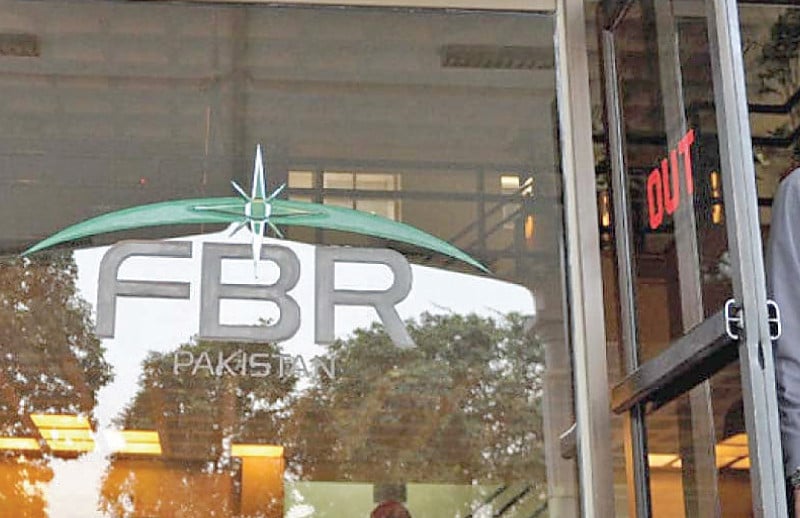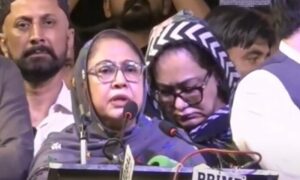ISLAMABAD:
Prime Minister Anwaarul Haq Kakar has convened a federal cabinet meeting on Tuesday to approve restructuring of the Federal Board of Revenue (FBR) after all stakeholders conceded significant ground for a divorce between the Inland Revenue Service (IRS) and the Customs Group.
The separation of the two service groups, which are collecting taxes, will result in an end to the FBR, whose parent body was set up in 1944. Finance Minister Dr Shamshad Akhtar has given up demand for the appointment of independent persons as heads of oversight boards of the Federal Customs Board (FCB) and the Federal Inland Revenue Board (FIRB). FCB and FIRB will be offshoots of the FBR that will cease to exist, subject to the cabinet’s approval.
Akhtar has also agreed that the FCB and the FIRB should be the attached departments of the Revenue Division as against her earlier proposals that both should report to the oversight boards. IRS has signed up to the separation of the two services. The Customs Service has agreed to serve as an attached department of the Revenue Division, like the Inland Revenue.
Revenue Division secretary will now either be from the Customs Group or the IRS, as against the earlier proposal that the secretary should be from a third service group. At present, about 40% of total taxes are collected by the Customs Group and the remaining 60% by the Inland Revenue. A year ago, the Custom’s share was 54% when imports were allowed unrestricted.
The Customs Group has also conceded that human resources management and integrity management may rest with the Revenue Division. The Customs Group has also agreed to become a withholding agent for income and sales tax collection at the import stage on behalf of the Inland Revenue.
The Revenue Division had been set up in 1944 and after partition the same structure continued till the 1970s. As a result of restructuring, the organisation first became the Central Board of Revenue (CBR) and then in 2007 it was restructured to become the FBR.
Three key stakeholders – the finance minister, IRS and Customs Group – reached an understanding only after the military establishment intervened. This led to a breakthrough and the FBR chairman, who is also the Revenue Division secretary, sent a summary for approval of the federal cabinet.
The Special Investment Facilitation Council (SIFC) had approved the FBR’s restructuring on January 3 with the directive to implement it within one month. But the FBR chairman and the finance minister had divergent views, which delayed the submission of the summary.
Federal Policy Board
Sources said that according to the reconciled proposal, there would be a Federal Policy Board, to be chaired by the finance minister. The Revenue Division secretary will act as the secretary to the policy board.
The policy board will formulate tax policy, assign revenue targets, and coordinate with stakeholders on all strategic issues.
The Customs and Inland Revenue organisation will be separated and each organisation will be headed by a director general. The federal government will appoint the director general for a fixed term. The position of FBR chairman along with the FBR would cease to exist.
Read FBR overhaul row may end soon
Both the new director generals will enjoy administrative, financial and operational autonomy and will have powers over their respective budgets. They will also be empowered to make transfers and postings, which is a major gain by the Customs Group. Currently, these decisions are solely in the hands of the IRS, which also became a reason for the divorce.
Oversight boards
The finance minister had initially proposed that two new oversight boards would be established and they should be chaired by people from the private sector. She faced strong resistance from the FBR chairman.
Now, these two oversight boards will be chaired by the finance minister. The boards will comprise secretaries of finance, revenue, commerce, NADRA chairman and domain experts. Both the director generals will report to their respective boards but their organisations will be attached departments of the Revenue Division, which appears a complex structure.
The oversight boards will set performance targets, monitor the performance and approve policies of the Customs and IR establishments but only related to administrative matters. The Customs will act as a withholding agent for the administration of Inland Revenue taxes at the import stage as per the understanding. However, the sources said that Customs officers had concerns about that arrangement, fearing that eventually the Inland Revenue officers may get access to their ports by withdrawing the withholding agent status.
Revenue Division
The Revenue Division has been entrusted with vast powers. All matters related to international taxes, valuation of goods and assets, information technology, digitisation and policies related to data exchange between the two new organisations will be the domain of the Revenue Division.
The matters related to integrity and human resources management of the new organisations will also rest with the Revenue Division. This is also a matter of concern for the Customs that wanted these functions to have been with the Customs Group.
Joint functions
There will be certain functions that will be jointly performed by the two bodies. The determination of values of imported goods through valuation rulings will be done by a committee having equal representation from the Customs and Inland Revenue.
The Inland Revenue has gained ground by venturing into an area that was earlier the sole responsibility of the Customs Group. The FBR’s assets will be divided between the two new organisations.
The finance minister will notify an implementation committee to ensure a smooth separation and the birth of the new organisations. The committee will propose legal and regulatory amendments.
The FBR chairman has proposed that the legal and administrative changes should be done in two weeks aimed at completing the whole exercise before the end of the caretaker government.
Published in The Express Tribune, January 23rd, 2024.
Like Business on Facebook, follow @TribuneBiz on Twitter to stay informed and join in the conversation.











